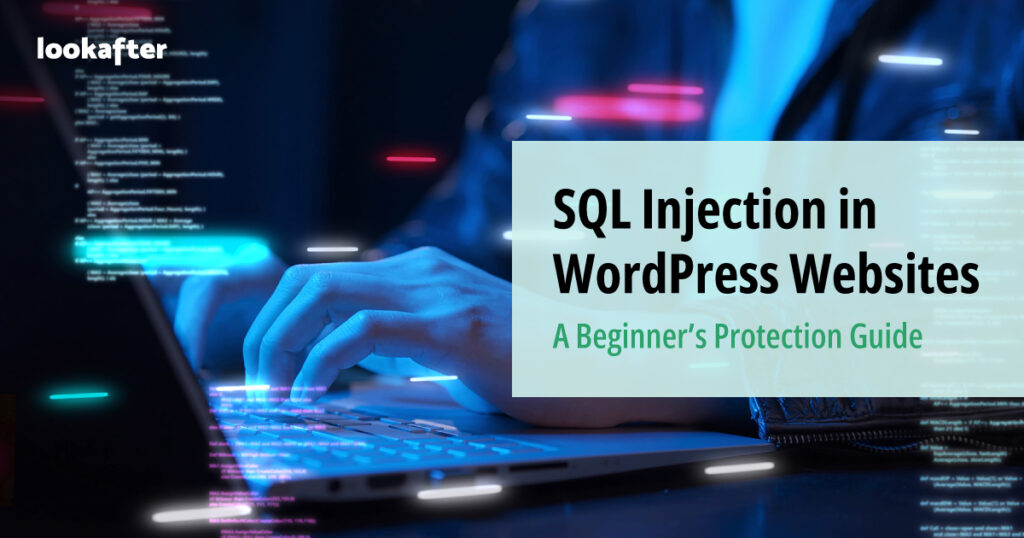Home > Empowering Tips > SQL Injection in WordPress Websites: A Beginner’s Protection Guide

Out of all the options for creating websites, WordPress is one of the most popular and versatile content management systems (CMS) out there. Its user-friendly interface and extensive range of plugins make it a go-to choice for individuals and businesses alike. However, the same qualities that make WordPress so appealing also attract the attention of cybercriminals looking to exploit vulnerabilities for their gain. One such vulnerability that can pose a significant threat to WordPress websites is known as SQL Injection.
What is SQL Injection?
SQL Injection might sound complex, but let’s break it down.
Imagine your website’s database as a big storage room full of information, containing everything from user details to content. To access this information, your website uses a special language called SQL to have a secret conversation with the database to fetch the right information.
Now, think of a hacker as someone who wants to sneak into this conversation. They try to send malicious messages, tricking the database into revealing things it shouldn’t. This is SQL Injection – injecting harmful instructions into the conversation to make the database disclose the information it shouldn’t.
What can happen if your website is attacked by SQL Injection?
In essence, an SQL Injection attack can wreak havoc on your website’s functionality, reputation, and security, affecting both you and your visitors. Here’s what can happen:
- Data Breach: Hackers can access and steal sensitive information from your website’s database, such as user passwords or other private data.
- Content Tampering: They can modify or delete your data. Imagine someone changing product prices on your online store or altering your blog posts to spread false information.
- Website Takeover: In the worst case, hackers could seize control of your website, using it for their purposes and tarnishing your online presence.
- Reputation Damage: A compromised website can erode trust among your visitors, deterring them from engaging with your content.
- Financial Loss: Fixing a hacked website can be expensive, and you might lose revenue due to downtime or decreased traffic.
Guarding Against SQL Injection
Protecting your WordPress website against SQL Injection doesn’t require technical expertise. Here are some simple steps that you can take to enhance your website’s security:
- Keep WordPress updated: Regularly update your WordPress core, themes, and plugins. Developers often release updates that include security patches to fix vulnerabilities. Keeping everything up to date reduces the chances of attackers exploiting known weaknesses.
- Use trusted plugins and themes only: Stick to well-known sources like the official WordPress plugin and theme repositories. These sources carefully review and assess products for security before making them available. Avoid downloading plugins or themes from untrustworthy websites.
- Use a strong password: Use strong, unique passwords for your admin accounts and other critical areas of your website. Avoid common passwords or using the same password across multiple sites.
- Limit permissions: Assign permissions to users and plugins carefully. Only grant the necessary permissions required for their specific tasks. Minimizing access reduces the potential damage that an attacker can inflict.
- Use security plugins: Consider using security plugins that can detect and prevent malicious codes from being injected into your website.
- Back up your website regularly: This will help you to recover from a data breach or other security incident. You should back up your website to a secure location, such as an external hard drive or cloud storage service.
- Consider subscribing to Lookafter WordPress Maintenance: Our maintenance service covers regular WordPress core, theme and plugins updates, website security hardening and tuning, website backup and restore, and more. Find out more >
Your digital presence is as valuable as any physical possession – it deserves protection. By implementing preventive measures and staying vigilant, you can ensure that your WordPress website remains a safe and reliable space for you and your visitors.